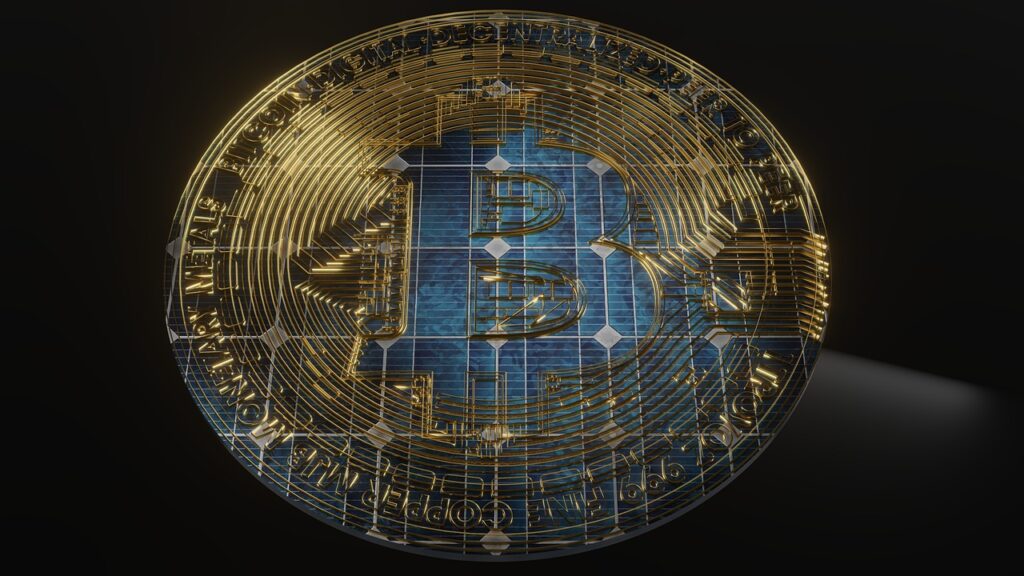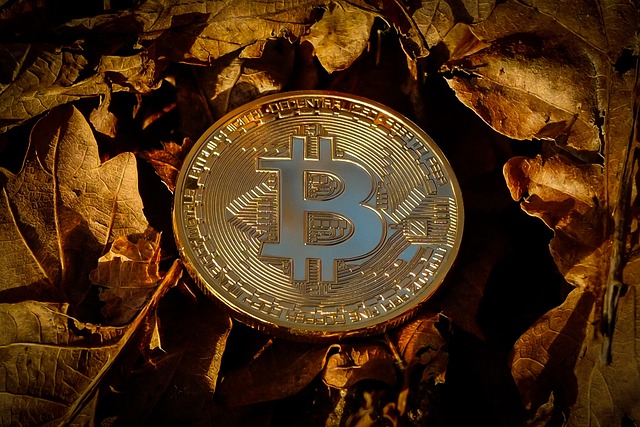Decentralized Finance Benefits: A Roadmap to Financial Freedom
Decentralized Finance Benefits: A Roadmap to Financial Freedom

What is Decentralized Finance?
Decentralized Finance, or DeFi for short, is a groundbreaking concept that is revolutionizing the traditional financial systems we have grown accustomed to. In simple terms, DeFi refers to a financial ecosystem that operates on a decentralized network, typically built on blockchain technology. Unlike traditional finance that relies heavily on intermediaries such as banks, DeFi aims to eliminate the need for middlemen and create a more open and accessible financial landscape.
In this decentralized system, transactions are executed using smart contracts, which are self-executing contracts with predefined rules coded into them.


How Does Decentralized Finance Work?
Decentralized finance, often referred to as DeFi, is a rapidly emerging field that aims to revolutionize the traditional financial system by leveraging the power of blockchain technology. At its core, DeFi operates on the principle of eliminating intermediaries and enabling direct peer-to-peer transactions. Through smart contracts, which are self-executing contracts with predefined rules and conditions, DeFi platforms facilitate the seamless exchange of digital assets without the need for trusted third parties such as banks or brokers. This decentralized nature of DeFi not only enhances transparency but also provides individuals with greater control over their financial activities.
In DeFi, lending and borrowing are major components, allowing participants to earn interest on their holdings or access funds to meet their financial needs. Diverse protocols, such as decentralized exchanges, liquidity pools, and stablecoins, form the building blocks of DeFi, creating an ecosystem where users can trade, lend, borrow, or earn rewards through various mechanisms. Smart contracts ensure that transactions are secure, tamper-proof, and autonomous, obviating the need for traditional intermediaries. By utilizing blockchain technology, DeFi eliminates the necessity of relying on centralized authorities and opens up an array of possibilities for individuals to engage in financial activities in a more efficient and democratic manner.
The Advantages of Decentralized Finance
Decentralized finance brings various advantages to individuals and the financial ecosystem as a whole. Firstly, it offers greater accessibility and inclusivity compared to traditional centralized systems. With decentralized finance, anyone with an internet connection can participate, regardless of their geographical location or social status. This empowers individuals who were previously excluded from traditional financial services, providing them with opportunities to manage their funds and invest in a more inclusive and equitable manner.
Secondly, decentralized finance offers enhanced privacy and security. Unlike centralized systems where personal and financial data is stored in a single location, decentralized finance operates on a distributed ledger called the blockchain. The blockchain ensures that transactions are transparent and immutable, while also protecting user privacy. This level of security not only safeguards individuals’ financial information but also reduces the risk of hacking and fraud, making decentralized finance a more secure alternative to traditional finance.
In addition to accessibility and security, decentralized finance also boasts lower costs and fees. Traditional financial intermediaries often charge high transaction fees, making it expensive for individuals to access certain financial services. Decentralized finance eliminates the need for middlemen, enabling users to transact directly with one another. This significantly reduces costs, as there are no intermediaries to add unnecessary fees. As a result, decentralized finance provides individuals with more cost-effective solutions and greater control over their financial transactions.
In summary, the advantages of decentralized finance lie in its accessibility, privacy, security, and reduced costs. This disruptive technology has the potential to revolutionize the financial industry, granting individuals greater financial freedom and leveling the playing field. However, it’s important to consider the potential risks and challenges that come with this innovation, as well as the future opportunities and innovations that decentralized finance may bring.
Accessibility and Inclusivity in Decentralized Finance
Decentralized finance (DeFi) has emerged as a revolutionary concept that aims to provide greater accessibility and inclusivity in the realm of financial services. Unlike traditional finance, which often operates within a centralized framework, DeFi leverages blockchain technology to create an open and permissionless financial system for all individuals, regardless of their background or location.
One of the key aspects that make DeFi accessible to a broader audience is the elimination of traditional gatekeepers. In a traditional financial system, individuals are often required to go through intermediaries, such as banks or other financial institutions, to access basic financial services. This can be a significant barrier, especially for those who are unbanked or underbanked. DeFi, on the other hand, allows individuals to directly interact with the financial system without the need for intermediaries, thereby reducing the barriers to entry and ensuring that anyone with an internet connection can participate.
Empowering Individuals: Financial Freedom in Decentralized Finance
Decentralized finance (DeFi) has emerged as a powerful tool for empowering individuals and providing them with financial freedom. In traditional financial systems, people are often subjected to various limitations and restrictions imposed by intermediaries such as banks and governments. However, DeFi eliminates these barriers by allowing individuals to have complete control over their finances.
One of the key ways DeFi empowers individuals is through its permissionless nature. Unlike traditional financial systems where individuals need to meet certain criteria or obtain approval, DeFi platforms can be accessed by anyone with an internet connection. This inclusivity ensures that even those who have been excluded from the traditional financial system, such as the unbanked, can participate in financial activities and take advantage of various opportunities. By giving individuals the ability to manage their funds directly and make decisions without intermediaries, DeFi truly puts financial power back into the hands of the people.
Enhanced Privacy and Security in Decentralized Finance
Decentralized finance, also known as DeFi, offers enhanced privacy and security compared to traditional financial systems. With DeFi, users have control over their own financial information, reducing the risk of data breaches and identity theft. By using blockchain technology, which ensures transparency and immutability, DeFi provides a secure environment for transactions and the storage of sensitive data.
In traditional finance, personal information is often shared with various intermediaries and centralized institutions, making users vulnerable to privacy breaches. However, in DeFi, personal data is kept private and secure through the use of decentralized platforms. Since transactions are conducted peer-to-peer without the involvement of intermediaries, personal information is not shared unnecessarily.

• DeFi allows users to have control over their own financial information
• Reduces the risk of data breaches and identity theft
• Blockchain technology ensures transparency and immutability
• Provides a secure environment for transactions and storage of sensitive data
• Personal information is kept private and secure in decentralized platforms
• Transactions are conducted peer-to-peer without intermediaries, reducing unnecessary sharing of personal information
• Increased privacy and security in DeFi safeguards user data
• Gives individuals greater peace of mind when engaging in financial activities.
Lower Costs and Fees in Decentralized Finance
Decentralized Finance (DeFi) has emerged as a revolutionary concept that aims to disrupt traditional financial systems. One of the most enticing features of DeFi is its ability to significantly lower costs and fees associated with financial transactions. Unlike traditional banking or financial institutions that often charge exorbitant fees for transactions and services, DeFi operates on decentralized networks such as blockchain, which eliminates the need for intermediaries and reduces costs.
The absence of intermediaries in DeFi results in direct peer-to-peer transactions, cutting out the middlemen and their associated fees. Moreover, DeFi platforms leverage smart contracts, which are self-executing agreements with predefined rules. These smart contracts enable automating various financial functions, eliminating the need for manual intervention and reducing costs further. As a result, individuals can enjoy lower transaction fees, making financial activities more affordable and accessible to a wider population. Through DeFi, the power of financial services can be brought to the masses, without burdensome fees eating into their earnings.
Removing Middlemen: How Decentralized Finance Disrupts Traditional Systems
Decentralized finance (DeFi) is revolutionizing the traditional financial systems by eliminating the need for intermediaries or middlemen. In traditional finance, banks, financial institutions, and other intermediaries play a central role in facilitating transactions, lending, and investment activities. However, DeFi introduces a decentralized and transparent network where transactions occur directly between participants, bypassing intermediaries.
This disruption brings several benefits to the financial landscape. Firstly, removing middlemen reduces the costs associated with financial transactions. In traditional systems, intermediaries charge fees for their services, increasing the overall cost for consumers. With DeFi, these fees can be significantly reduced, making financial services more accessible and affordable for individuals. Additionally, by eliminating intermediaries, DeFi also minimizes the risk of censorship or control by centralized authorities, providing users with greater financial autonomy and control over their assets. This democratization of finance empowers individuals and fosters a more inclusive and open financial ecosystem. So far, DeFi has gained significant traction and holds promising potential for reshaping the future of finance.
The Potential Risks and Challenges of Decentralized Finance
Decentralized Finance (DeFi) has gained significant traction in recent years, promising a revolutionary shift in the world of traditional finance. However, like any technological advancement, it brings along its fair share of risks and challenges. One of the main concerns is the possibility of smart contract vulnerabilities. While smart contracts automate processes and transactions, they are prone to programming errors and can be exploited by malicious actors. These vulnerabilities have the potential to result in financial losses for users and undermine trust in the entire DeFi ecosystem.
Another challenge faced by decentralized finance is the issue of regulatory compliance. The ambiguous regulatory landscape surrounding cryptocurrencies and DeFi platforms has created uncertainty and limits the mainstream adoption of these technologies. Aligning decentralized finance with existing regulations is a complex task, as it necessitates striking a fine balance between embracing innovation and ensuring investor protection. Without clear guidelines, DeFi platforms can inadvertently become a breeding ground for illicit activities, undermining the very principles of decentralization and trust they aim to achieve. Finding a harmonious coexistence between regulators and the DeFi community is crucial for the future success and sustainability of this emerging field.
The Future of Decentralized Finance: Opportunities and Innovations
The future of decentralized finance holds immense potential for opportunities and innovations. As the technology continues to evolve and improve, we can expect to see a wide range of exciting developments in this space. One of the key areas of focus will be increased interoperability between different decentralized finance platforms and networks. This will enable seamless transfer of assets and data across various protocols, opening up new possibilities for users and businesses.
Furthermore, advancements in decentralized finance will also bring about greater financial inclusion. With traditional systems often excluding large segments of the population, decentralized finance has the power to bridge this gap by providing access to financial services to anyone with an internet connection. This has the potential to empower individuals in underserved communities, giving them the tools to participate in the global economy and improve their financial well-being. Additionally, we can anticipate the emergence of new decentralized applications and protocols that cater to specific needs and niches, offering tailored solutions and services to various industries. So, as we look towards the future of decentralized finance, we can expect a landscape filled with opportunities for innovation and positive change.
What is decentralized finance?
Decentralized finance, also known as DeFi, refers to a financial system that operates on blockchain technology and eliminates the need for intermediaries like banks or financial institutions.
How does decentralized finance work?
Decentralized finance utilizes smart contracts on blockchain platforms like Ethereum to enable the creation and execution of financial transactions without the need for a central authority. It allows users to access various financial services, such as lending, borrowing, trading, and investing, directly through decentralized applications (dApps).
What are the advantages of decentralized finance?
Decentralized finance offers several advantages, including increased accessibility and inclusivity, financial freedom for individuals, enhanced privacy and security, lower costs and fees, and the removal of middlemen.
How does decentralized finance promote accessibility and inclusivity?
Decentralized finance allows anyone with an internet connection to access financial services, regardless of their location or socio-economic status. It opens up opportunities for the unbanked and underbanked populations to participate in the global financial system.
How does decentralized finance empower individuals?
Decentralized finance gives individuals full control over their finances by allowing them to manage their assets directly without relying on third parties. It enables greater financial freedom and autonomy.
How does decentralized finance enhance privacy and security?
Decentralized finance operates on blockchain networks, which offer transparency and immutability while ensuring that users’ personal information remains private. Smart contracts and encryption techniques provide a high level of security, protecting users from fraud and unauthorized access.
How does decentralized finance reduce costs and fees?
By eliminating intermediaries like banks and financial institutions, decentralized finance significantly reduces transaction fees and operational costs. This enables users to benefit from lower fees when engaging in financial activities.
How does decentralized finance disrupt traditional systems?
Decentralized finance disrupts traditional systems by removing the need for intermediaries, such as banks, brokers, and clearinghouses. It replaces them with smart contracts and decentralized applications, streamlining processes and reducing dependency on centralized institutions.
What are the potential risks and challenges of decentralized finance?
Some potential risks and challenges of decentralized finance include smart contract vulnerabilities, regulatory uncertainties, potential for scams and fraudulent schemes, and the need for user education regarding responsible financial practices.
What does the future hold for decentralized finance?
The future of decentralized finance is promising, with potential opportunities and innovations on the horizon. As the technology evolves, we can expect to see advancements in scalability, interoperability, cross-chain transactions, and the integration of real-world assets into decentralized finance ecosystems.
Todays Featured Product:
Buy, exchange and grow your crypto securely with a Ledger hardware wallet, combined with the Ledger Live app. It’s never been easier to keep your crypto safe and accessible. Buy direct from Ledger.com and get todays Special Offers Here.




